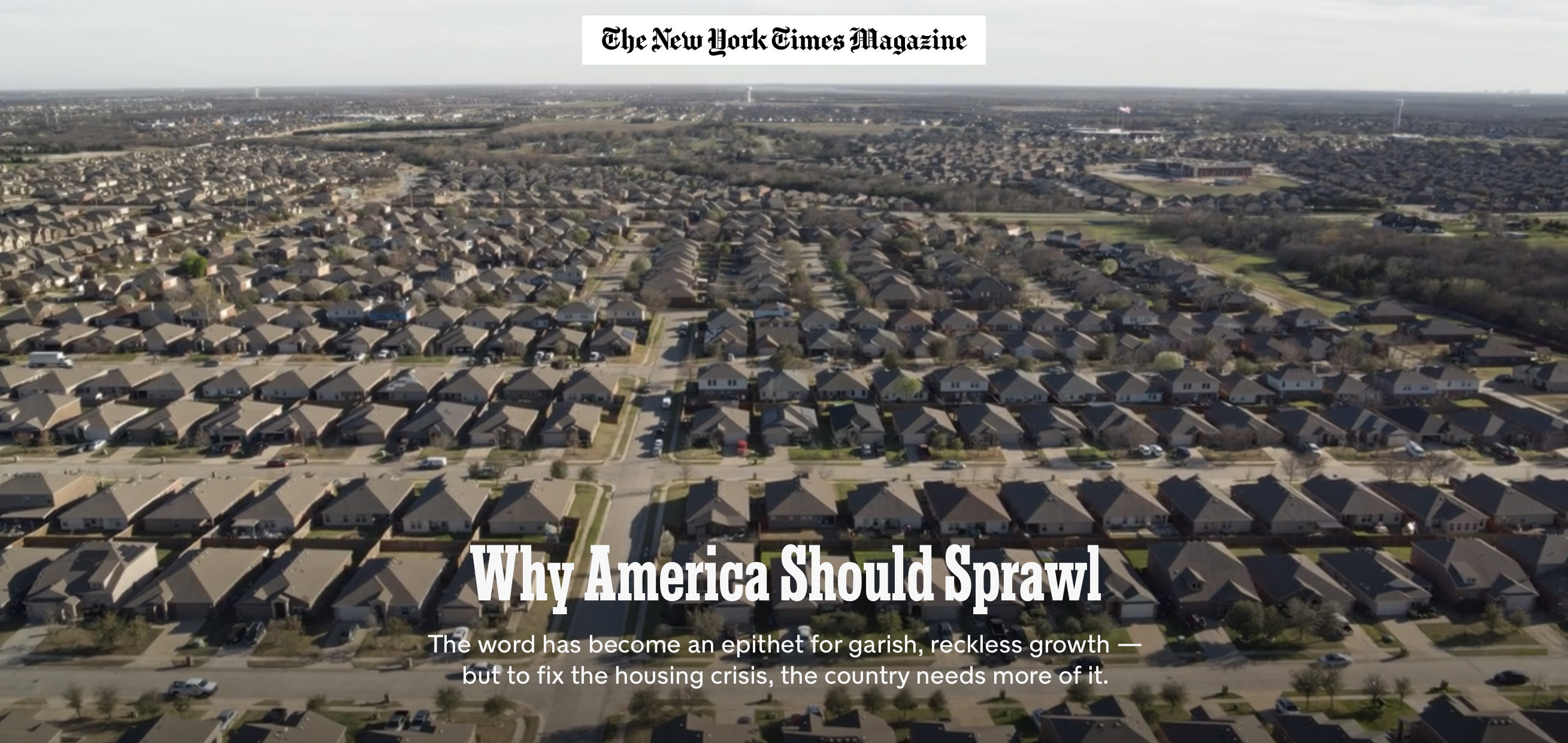
"The headline on Conor Dougherty's piece actually isn't misleading: that's what the story is about. It's a defense of suburban sprawl on the grounds that our nation is millions and millions of housing units behind what is needed."
"But would it have killed Dougherty to at least consider that sprawl has negative consequences such as car dependence, which leads to poor health outcomes and other suburban negatives."
"In fact, when Doughtery mentions transportation, it's only as an aside, such as when he discusses the original growth of the suburbs in the 1920s: 'First railroads, then automobiles changed that, opening the gates of suburbia to the middle class.'"
"Cars are the opposite of that: causing congestion, pollution, stress and inefficiency."
The article critiques a New York Times piece advocating for suburban sprawl as a remedy for America's housing crisis. The author agrees with the need for more housing but highlights the article's neglect of sprawl's negative impacts, such as increased car dependence and poor health outcomes. While the piece outlines historical factors that contributed to suburban growth, it downplays the long-term consequences of such development, like traffic congestion and pollution. The critique calls for a more comprehensive discussion of urbanism in mainstream media.
Read at Streetsblog
Unable to calculate read time
Collection
[
|
...
]